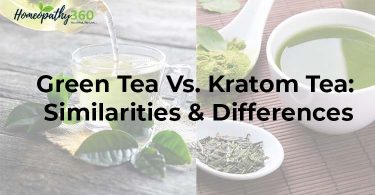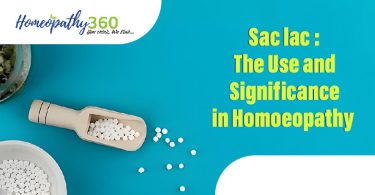
Introduction
Vaccination is vital for preventing infectious diseases, yet it can come with mild to moderate side effects, such as fever, soreness at the injection site, fatigue, and allergic reactions. While most side effects are temporary and resolve on their own, some individuals seek ways to alleviate discomfort. Thuja occidentalis, commonly known as arborvitae, is a homeopathic remedy often explored for this purpose. This article discusses the potential benefits and considerations of using Thuja in the context of vaccination side effects.
What is Thuja?
Thuja occidentalis is a coniferous tree native to North America, recognized for its medicinal properties in homeopathy. The plant’s extracts are believed to have various health benefits, primarily due to their purported effects on the immune system and skin health. In homeopathic practice, Thuja is used for conditions involving skin issues, warts, and general immune support.
Potential Benefits of Thuja in Post-Vaccination Care
- Alleviating Skin Reactions;
– Localized Reactions: After vaccination, individuals may experience redness, swelling, or tenderness at the injection site. Thuja is traditionally employed in homeopathy to manage inflammatory skin reactions. It is thought to promote healing and reduce local inflammation, potentially easing the discomfort associated with vaccination.
– Skin Conditions: For those who are prone to skin conditions such as eczema or psoriasis, Thuja may offer additional relief if these conditions flare up post-vaccination.
- Supporting Immune Function:
– Immune Response: Vaccines work by stimulating the immune system to recognize and fight off pathogens. Thuja is considered a remedy that may enhance immune response and resilience. By potentially boosting the body’s natural defenses, Thuja may help facilitate a more effective reaction to the vaccine, possibly mitigating adverse effects.
– Overall Wellness: Some practitioners believe that Thuja can help restore balance to the immune system, contributing to overall wellness during the vaccination process.
- Reducing Mental and Emotional Symptoms:
– Stress and Anxiety: Vaccination can provoke anxiety in some individuals, particularly in children or those with needle phobia. Thuja is sometimes used to address emotional symptoms, promoting a sense of calm and well-being. This may be particularly helpful for patients who experience heightened anxiety around medical procedures.
– Fatigue Management: Fatigue is a common side effect after vaccination. Thuja may help alleviate feelings of lethargy, contributing to a quicker recovery and a more positive post-vaccination experience.
Considerations and Usage
While Thuja may provide benefits for some individuals, there are several important considerations:
- Homeopathic Principles; Hmeopathy operates on the principle of “like cures like,” meaning that substances that cause symptoms in a healthy person may help alleviate similar symptoms in someone who is ill. This approach may not resonate with everyone, and its efficacy can be variable.
- Consultation with Healthcare Providers: It is crucial for individuals considering Thuja or any homeopathic remedy to consult with healthcare professionals. A qualified practitioner can provide guidance based on the individual’s health history and specific needs.
- potential Allergies and Interactions : Although generally considered safe, individuals should be aware of any potential allergies to Thuja or related plants. Additionally, those on other medications should discuss possible interactions with their healthcare provider.
- Limited Scientific Evidence -While anecdotal evidence and traditional use support Thuja’s benefits, scientific studies
- Its role in post-vaccination care is limited. More research is necessary to substantiate its effectiveness and safety in this context.
Conclusion
Thuja occidentalis may serve as a complementary approach for managing some side effects of vaccination, particularly related to skin reactions, immune support, and emotional well-being. However, it is essential to approach its use with caution and under professional guidance. Given the variability in individual responses and the need for more comprehensive research, individuals should prioritize informed decisions regarding their health and vaccination care.
References
- Hahnemann, S. (2002). The Organon of Medicine. 6th ed. Translated by R. E. Dudgeon. New Delhi: B. Jain Publishers.
- Winston, D. (2007). Herbal Therapy and Supplements: A Scientific and Clinical Guide. 3rd ed. St. Louis, MO: Elsevier.
- Pizzorno, J., & Murray, M. T. (2013). Textbook of Natural Medicine. 4th ed. St. Louis, MO: Elsevier.
- Hahnemann, S., & Hering, C. (1999). The Science of Homeopathy. 2nd ed. New York: Hahnemann Publishing.
- Vithoulkas, G. (2010). The Science of Homeopathy. New York: Hahnemann Publishing.
- Thompson, L. (2016). “A Review of Homeopathic Remedies for Post-Vaccination Care.” Journal of Alternative and Complementary Medicine, 22(7), 559-565.
- Seymour, J. (2015). “Evaluating Homeopathic Remedies for Immunization Reactions.” Homeopathy, 104(3), 215-221.
Author
Dr Menika Prajapati
Under The Guidance of-
Dr Shobhana Shukla (Guide)
Professor & Ex-Joint Director, AYUSH,Bhopal
Government Homoeopathic Medical College and Hospital,Bhopal AYUSH campus,beside kaliyasot dam, MACT hills,Bhopal- 462003(M.P.) |





